Category: Environment
Solar panels have a positive and sometimes a negative impact on the environment.
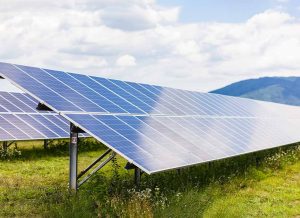
Renewables are the cheapest form of energy for residential and industrial purposes. The IEA’s World Energy Outlook has ranked solar and wind energy as the top spots for the cheapest renewable energy sources. According to IRENA, International Renewable Energy Agency, 62% of total renewable power generated in 2020 had lower production cost than the cheapest …
Continue reading “Renewables: Cheapest Form of Energy (Solar & Wind)”
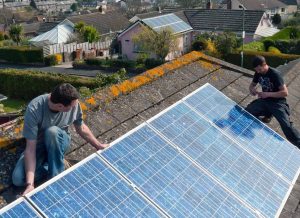
Solar energy, a renewable and clean source of power, has gained immense popularity in recent years. As more homeowners and businesses consider making the switch to solar, it’s essential to weigh the advantages and disadvantages of going solar. This blog post will delve deep into the disadvantages of solar energy in 2023, discussing aspects such …
Continue reading “What Are the Disadvantages of Solar Energy?”
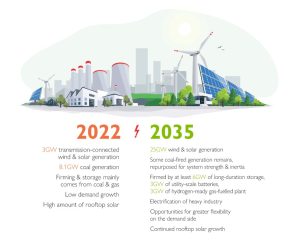
The Queensland government has set both ambitious and attainable goals to reduce emissions, while also promoting the development of new job opportunities and expanding the state’s economic foundation. Over the last decade, the government has effectively developed a large-scale renewable energy sector, leading to a growing number of households and businesses powering up with renewable …
Continue reading “The Government’s Renewable Energy Targets for Queensland”
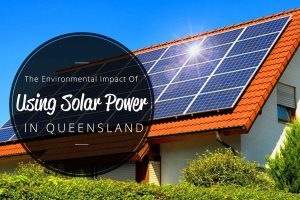
Queensland, with its over 300 sunny days a year, presents a perfect opportunity for embracing solar power. By adopting solar panels as a renewable energy source, you’re not only lessening your environmental impact but also cutting down on your energy bills at the same time. Nevertheless, it prompts the inquiry: Is solar power truly as …
Continue reading “The Environmental Impact of Using Solar Power in Queensland”
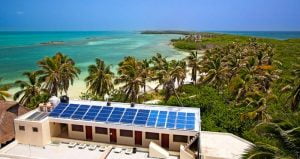
High amounts of carbon in the air from long periods of environmental degradation have led to disasters and drought. Solar panels are one of the solutions for a reduction in global warming due to their carbon-offsetting capabilities. Solar panels offset 50g of carbon dioxide for every kilowatt-hour of power they produce. They produce 20 times …

Using solar energy as a source of electricity in your home or business reduces your carbon footprint. Your carbon footprint is your contribution to greenhouse gas emissions and other harmful substances to the environment. And because solar energy is green and clean, many people are switching to it. But does it reduce your carbon footprint …
Continue reading “How Much Does Solar Energy Reduce Carbon Footprint?”
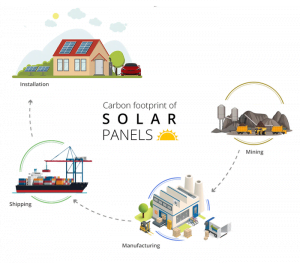
Solar panels emit zero Co2 while they they sit on a rooftop generating electricity for the home, but they do have a carbon footprint. But how? Solar panels generating are carbon footprint in the manufacturing and transport process which studies show is 50g per kWh manufactured. This includes the mining of raw materials such as …
Continue reading “What Is the Carbon Footprint of Solar Panels?”
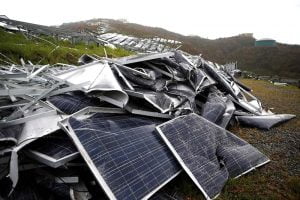
Lots of energy goes into making a solar panels, from mining raw materials to manufacturing and transport, so it would make sense to recycle them from an environmental standpoint. Solar panels can be recycled, but we are in the early stages of opening dedicated recycling plants. The panels are made of silicon, aluminum, copper, plastic, …

All types of energy generation leave some kind of a carbon footprint. Even green sustainable energy like solar leaves a carbon footprint in the production of the panels including mining for raw materials, manufacturing, and transport to their final destination. The least CO2 is produced by wind and nuclear at 11 g and 12 gCO2/kWh …
Continue reading “Which Energy Sources Have the Lowest Carbon Footprint?”
